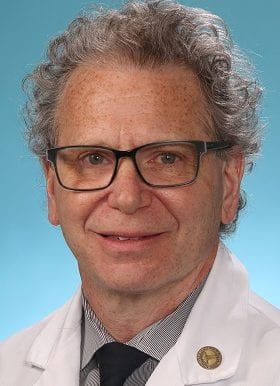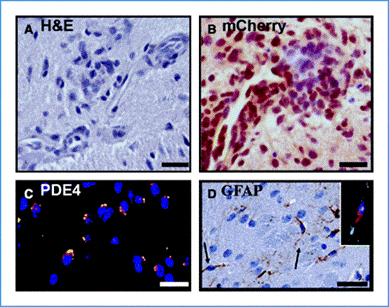
Joshua Rubin, MD, PhD
Professor, WashU Pediatrics
- Phone: 314-454-6018
- Email: rubin_j@nospam.wustl.edu
Biology and treatment of pediatric brain tumors

We are interested in the mechanisms of brain tumorigenesis during early childhood and in developing novel approaches to brain tumor cure. The peak incidence of pediatric brain tumors (3.8 cases/100,000 children) occurs during the first 4 years of life. At this time, tumors arise from virtually every cellular lineage in the growing brain. The rate of brain tumors subsequently declines to a lifetime nadir during adolescence (1.5 cases/100,000) coincident with the emergence of a more adult pattern of brain tumors: one that is primarily restricted to tumors of glial origin. An incidence of 3.8 cases/100,000 is not reached again until the 5th decade of life, but the histological diversity of early brain tumors is not seen again.
The temporal relationship between the peak of pediatric brain tumors and the period of most rapid brain growth strongly suggests that brain tumorigenesis early in life is intertwined with normal brain development. Among the developmental processes that pattern the brain and impact on tumorigenesis is sexual differentiation. Brain tumors occur more frequently in males than in females, including early in life when there are no differences in circulating sex hormones. In an array of research projects we have focused on specific developmental pathways such as the CXCL12-CXCR4 and cAMP pathways, as well as on how cell intrinsic sexual dimorphism in tumor progenitors influences the genesis of pediatric brain tumors. This work involves genetically engineered mouse models of human brain tumors, murine neural stem cell and differentiated neural cultures as well as primary human brain tumor culture models.
In related work we are striving to develop novel therapeutics for brain tumors. We are using an in vitro model of the human brain tumor perivascular stem cell niche that we developed as well as intracranial xenografts of human and mouse malignant brain tumors. We are performing compound library screens as well as in vivo preclinical studies. We have a particular focus on how tumor cell intrinsic circadian rhythm influences response to cytotoxic agents and how to incorporate circadian biology into approaches to brain tumor cure.